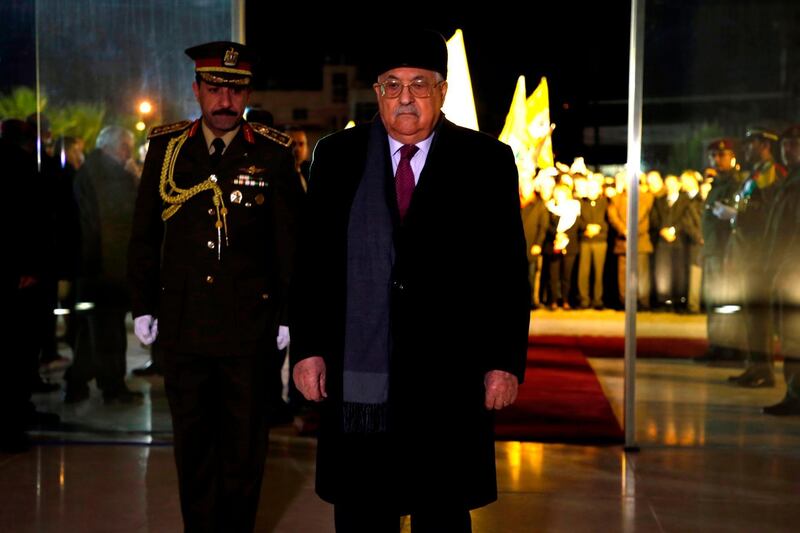The Palestinian envoy to the United States has been recalled for consultations in a move that follows US president Donald Trump's recognition of Jerusalem as Israel's capital.
Foreign minister Riad Al Malki said on Sunday that discussions would take place "to set the decisions needed by the Palestinian leadership in the coming period regarding our relations with the US".
He said the envoy, Husam Zomlot, is expected to return to "his normal work" after the discussions.
Mr Trump's December 6 announcement regarding the disputed city has enraged the Palestinians and triggered weeks of unrest in the West Bank and Gaza. Thirteen Palestinians have been killed, most of them in clashes with Israeli forces.
The recall of the US envoy follows earlier expressions of Palestinian anger, including Palestinian president Mahmoud Abbas's refusal to meet US vice president Mike Pence during a visit to the region that had been planned for December but which was later cancelled.
Mr Abbas has also said he would accept no further role for the United States in the Middle East peace process.
On Sunday, while marking the 53rd anniversary of his Fatah movement, Mr Abbas called Jerusalem "the eternal capital of the Palestinian people".
Mr Trump's decision, which overturned decades of US policy, was overwhelmingly rejected in a UN General Assembly vote on December 21 and criticised by Washington's Arab allies in the Middle East.
Jerusalem's status is one of the key issues in the Israeli-Palestinian conflict. Israel claims the entire city as its capital, while the Palestinians want the eastern sector as the capital of their future state.
Israel occupied east Jerusalem and the West Bank in the 1967 Arab-Israeli War and later annexed the eastern half of the city in a move that was never recognised by the international community.
_______________
Read more:
[ Israeli troops wound 56 Palestinians in new clashes ]
[ Israel wants to build 'Trump station' near Western Wall ]
Much remains unresolved in the Middle East as we bid farewell to 2017
_______________
Although Mr Trump noted in his decision that Jerusalem's final status would have to be decided in negotiations between the two sides, the Palestinians are not convinced.
Many analysts have questioned how a fair peace process could be possible after such a major concession was made without seeming to demand anything in return.
The White House has been working on ways to restart long-stalled Israeli-Palestinian peace efforts, but the Jerusalem declaration has threatened to end any such attempt if ties cannot be repaired.
Relations between the Palestinians and Washington had already taken a hit in November when the United States threatened to close the Palestine Liberation Organisation's office in Washington.
Mr Trump has a 90-day window to avert the closure if he deems progress has been made.
Under long-standing US law, permission for the PLO to maintain its mission in Washington must be renewed every six months.
US officials say that by calling for Israeli officials to be prosecuted at the International Criminal Court, Palestinian leaders have breached the terms of the arrangement.





